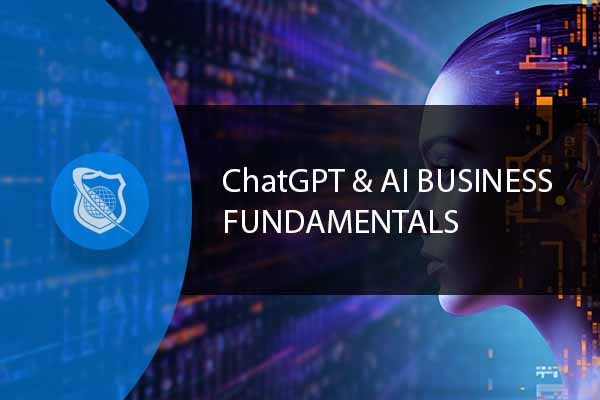What Is 3D Printing?
3D printing, also known as additive manufacturing, refers to a process of creating three-dimensional solid objects from a digital file. The creation of a 3D printed object is achieved using

Artificial General Intelligence (AGI) represents the cutting edge of technological innovation, a frontier that has captivated scientists, engineers, and thinkers for decades. Unlike narrow AI, which excels in specific tasks, AGI possesses the ability to understand, learn, and apply knowledge across a wide range of activities, much like a human being. This blog post will explore the “artificial general intelligence course,” taking you from the basics to advanced techniques. Whether you’re a seasoned professional or a curious novice, this comprehensive guide offers insights and practical knowledge to enhance your understanding of AGI.
The journey into the world of Artificial General Intelligence (AGI) is both exciting and complex. A well-structured learning path can guide learners through the multifaceted landscape of AGI, from foundational concepts to advanced techniques. Here’s a detailed look at the learning path for an “artificial general intelligence course”:
Starting with a solid foundation is key to understanding AGI. This stage lays the groundwork for more advanced studies.

Embark on a journey to master the future of AI! Our ChatGPT training course is tailored to ignite your passion for Conversational AI. Whether you’re a seasoned developer or just starting your AI adventure, this course offers the keys to unlock the limitless potential of ChatGPT. Don’t miss out!
Building on the basics, intermediate topics delve into more specialized areas of AGI.
For those ready to dive into advanced AGI concepts, this stage offers a deep and comprehensive exploration.
The “artificial general intelligence course” offers a structured and comprehensive learning path, guiding learners from the basics to advanced techniques. With a blend of theoretical knowledge, practical skills, collaborative projects, and real-world applications, the course equips learners to explore, innovate, and contribute to the exciting field of AGI.

Transform your AI skills with our ChatGPT training course! Designed for innovators like you, this comprehensive program will guide you through the fascinating world of Conversational AI. From developers to AI enthusiasts, it’s time to elevate your expertise and make your mark on the future.
Artificial General Intelligence has been a concept in the making for over half a century. It began with the dreams of early computer scientists who envisioned machines that could think and reason like humans. From the Turing Test to the advent of neural networks, the journey towards AGI has been filled with both triumphs and setbacks.
The field of Artificial Intelligence can be broadly categorized into two main types: Narrow AI (or Weak AI) and Artificial General Intelligence (AGI). Understanding the differences between these two forms of AI is crucial for anyone delving into the world of intelligent machines. Below, we’ll explore the key distinctions that set them apart.
The comparison between Narrow AI and AGI reveals fundamental differences in scope, complexity, application, and ethical considerations. While Narrow AI continues to advance and provide valuable solutions in specific areas, the pursuit of AGI represents a grand challenge, filled with potential and uncertainties. The “artificial general intelligence course” offers an opportunity to explore these concepts in depth, providing insights and knowledge to navigate this fascinating field.

Dive into the cutting-edge world of Conversational AI with our ChatGPT training course! This immersive program is your gateway to mastering ChatGPT, offering insights, hands-on experience, and expert guidance. Join us, and unleash the power of AI to revolutionize your career and creativity.
The development of Artificial General Intelligence (AGI) requires a multifaceted approach, combining various disciplines and technologies. Three core components are essential in this endeavor: Cognitive Architecture, Learning Algorithms, and Knowledge Representation. Let’s delve into each of these components to understand their significance and how they contribute to AGI.
Cognitive Architecture refers to the underlying structure that mimics the human mind’s functioning, allowing machines to think and reason like humans.
Learning Algorithms are the engines that drive AGI’s ability to learn from data and experience, adapting to new information and tasks.
Knowledge Representation involves encoding information in a way that machines can understand, reason with, and utilize.
The pursuit of Artificial General Intelligence (AGI) is filled with complexities, challenges, and ethical dilemmas. From technical hurdles to moral questions and regulatory concerns, the path to AGI requires careful navigation. Let’s explore these aspects in more detail.
Developing AGI is a monumental task, fraught with technical challenges that researchers and engineers must overcome.
AGI’s potential to transform society brings ethical questions that must be thoughtfully addressed.

Unleash the power of AI with our ChatGPT training course! Whether you’re a data scientist, developer, or AI lover, this course is crafted to fuel your curiosity and sharpen your skills. Explore, learn, and innovate with ChatGPT, and be part of the AI revolution that’s shaping our world.
The development and deployment of AGI are not solely technical and ethical matters. Governments, organizations, and international bodies are actively working to shape the regulatory landscape.
ITU Online’s ChatGPT Training Course
If you’re looking to enhance your AI skills further, ITU Online’s ChatGPT Training Course is an excellent choice. This comprehensive course offers hands-on experience with ChatGPT, one of the most advanced AI models available. It complements the “artificial general intelligence course” by providing practical skills and expert guidance.
AGI continues to evolve, with trends like explainable AI, human-AI collaboration, and quantum computing shaping the future.
From healthcare to transportation, AGI has the potential to revolutionize industries, creating opportunities and challenges alike.
The field of AGI offers exciting career paths for researchers, engineers, ethicists, and more. Pursuing an “artificial general intelligence course” opens doors to these opportunities.
Artificial General Intelligence is a field rich with potential and complexity. From understanding its history to exploring its future, this blog post has guided you through the “artificial general intelligence course: from basics to advanced techniques.” With resources like ITU Online’s ChatGPT Training Course, the journey into AGI is accessible and rewarding. Embrace the challenge, and be part of the revolution that is shaping our world.
Mobile device security refers to the protection of smartphones, tablets, and other portable devices from threats and vulnerabilities. It’s crucial because these devices often contain sensitive information, such as personal data, banking details, and professional documents. Effective security measures prevent unauthorized access, data breaches, and malware infections, ensuring your personal and professional information remains safe.
Protecting your mobile device from malware and viruses involves several key practices. Firstly, install a reputable antivirus app designed specifically for mobile devices. Regularly update your device’s operating system and apps to fix security vulnerabilities. Only download apps from official app stores, as they have strict security standards. Additionally, be wary of phishing attempts via email or messages, and avoid clicking on suspicious links or attachments.
Securing sensitive data on mobile devices requires a combination of physical and digital security measures. Use strong, unique passwords or biometric security features like fingerprint or facial recognition for device access. Enable encryption to protect your data in case your device is lost or stolen. Consider using secure communication apps for sensitive conversations and regularly back up important data to a secure location.
Regular updates are crucial for maintaining mobile device security. Manufacturers and app developers frequently release updates to fix vulnerabilities and improve security features. It’s recommended to enable automatic updates for both your device’s operating system and installed apps. If automatic updates are not possible, check for updates at least once a month.
If your mobile device is lost or stolen, act quickly to protect your information. Use a remote tracking service, if available, to locate your device. Remotely lock the device to prevent unauthorized access, and if necessary, remotely wipe the device to protect sensitive information. Report the loss or theft to your service provider and local authorities, and change the passwords for any accounts accessed through the device.
Lorem ipsum dolor sit amet, consectetur adipiscing elit. Ut elit tellus, luctus nec ullamcorper mattis, pulvinar dapibus leo.
$49.99 Original price was: $49.99.$16.99Current price is: $16.99. / month with a 10-day free trial
3D printing, also known as additive manufacturing, refers to a process of creating three-dimensional solid objects from a digital file. The creation of a 3D printed object is achieved using
Access Management refers to the processes and technologies designed to control and manage access to information and systems within an organization. It plays a critical role in ensuring that the
An Ad Hoc Network is a decentralized wireless networking paradigm that allows individual devices to communicate directly with each other without relying on a pre-existing infrastructure, such as routers or
Adaptive User Interfaces (AUIs) are intelligent systems designed to improve user interaction with software applications by automatically adjusting their layout and elements based on the user’s needs, preferences, and context.
Adobe Photoshop is a powerful digital imaging and graphics editing software developed by Adobe Inc. It’s widely recognized as the industry standard for raster graphics editing, used by professionals in
Agile Business Analysis (ABA) is a methodological approach that focuses on delivering business value by integrating business analysis processes with agile principles. It emphasizes flexibility, continuous improvement, and close collaboration
Agile Project Portfolio Management (PPM) is an approach that aligns project, program, and portfolio management practices with agile methodologies. It focuses on flexibility, continuous improvement, and the ability to adapt
Agile Test Automation refers to the practice of automating the testing process in an agile software development environment. It aims to enhance the efficiency and effectiveness of testing by automating
AI Governance is a framework or system designed to ensure the responsible development, deployment, and use of artificial intelligence (AI) technologies. It encompasses a broad set of policies, principles, and
Algorithmic bias refers to systematic and repeatable errors in a computer system that create unfair outcomes, such as privileging one arbitrary group of users over others. This bias can originate
Amazon Web Services (AWS) is a comprehensive, evolving cloud computing platform provided by Amazon that includes a mixture of infrastructure as a service (IaaS), platform as a service (PaaS), and
Continuous Data Protection (CDP), also known as real-time data protection, refers to the method of backing up data by automatically saving a copy of every change made to that data,
ENDING THIS WEEKEND: Train for LIFE at our lowest price. Buy once and never have to pay for IT Training Again.